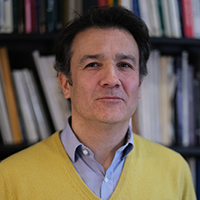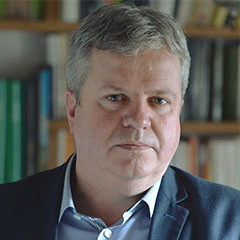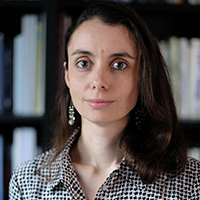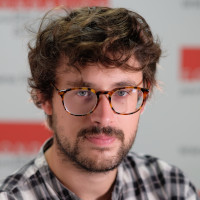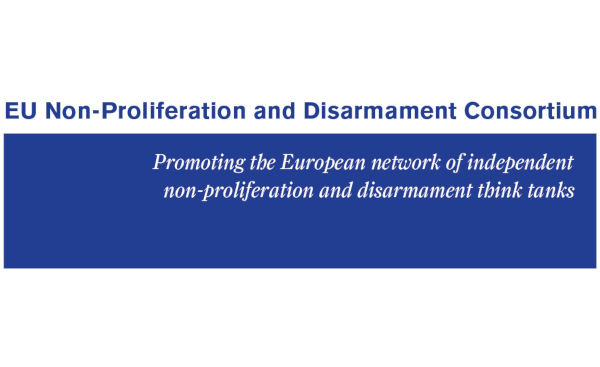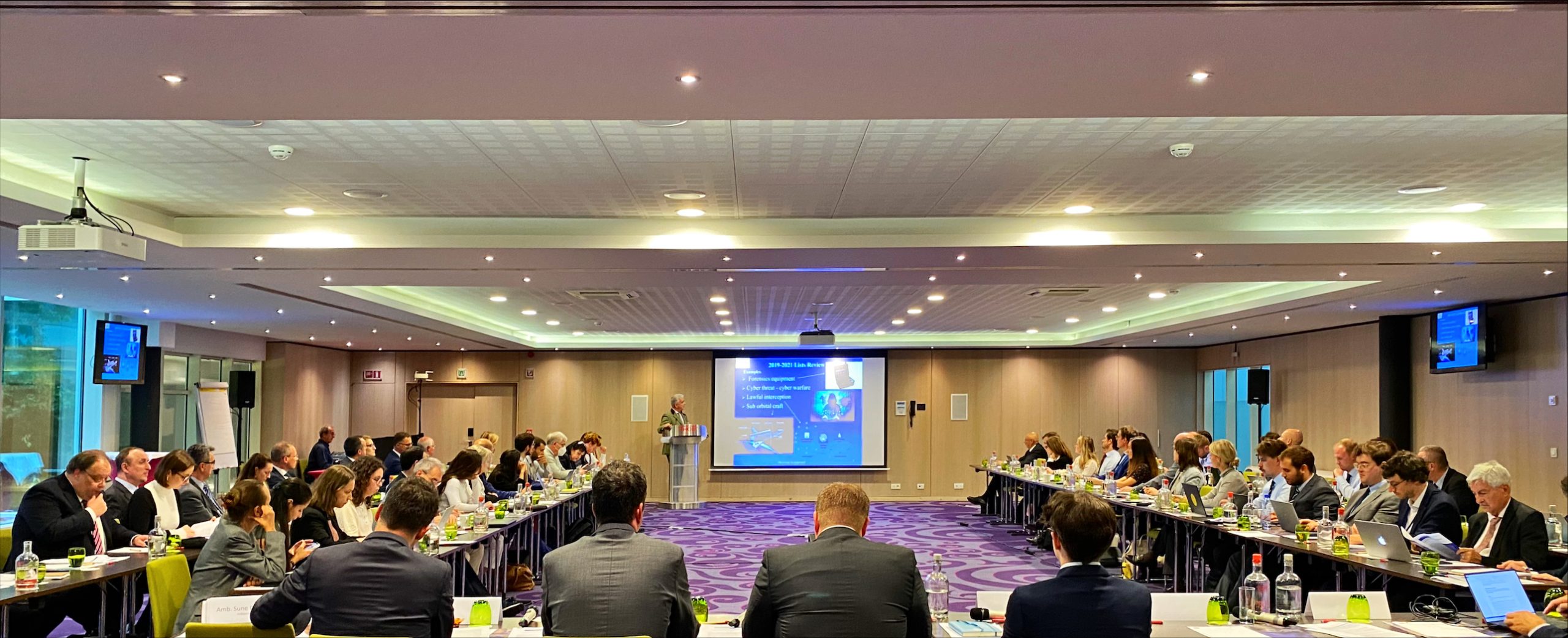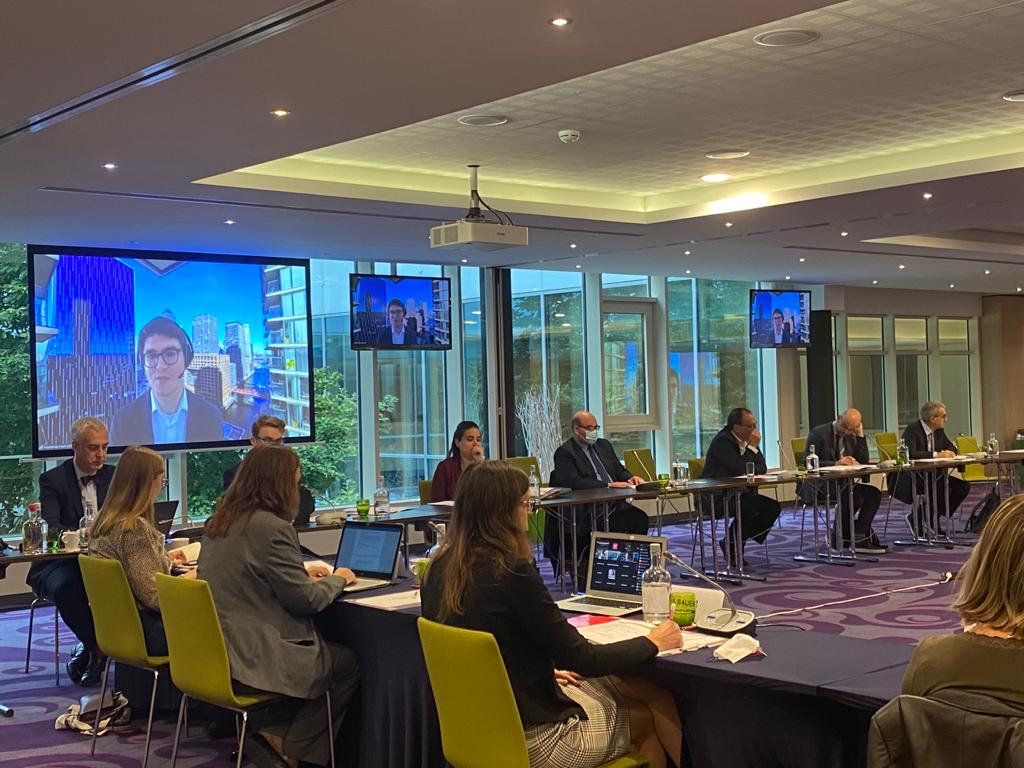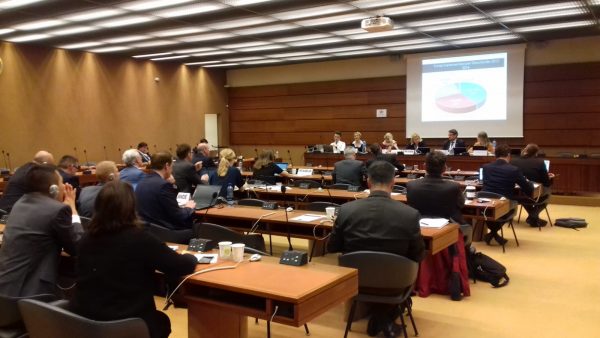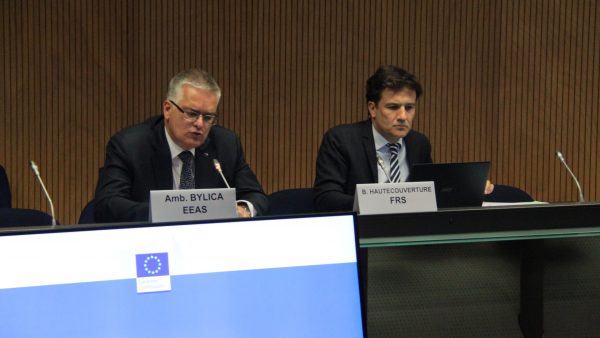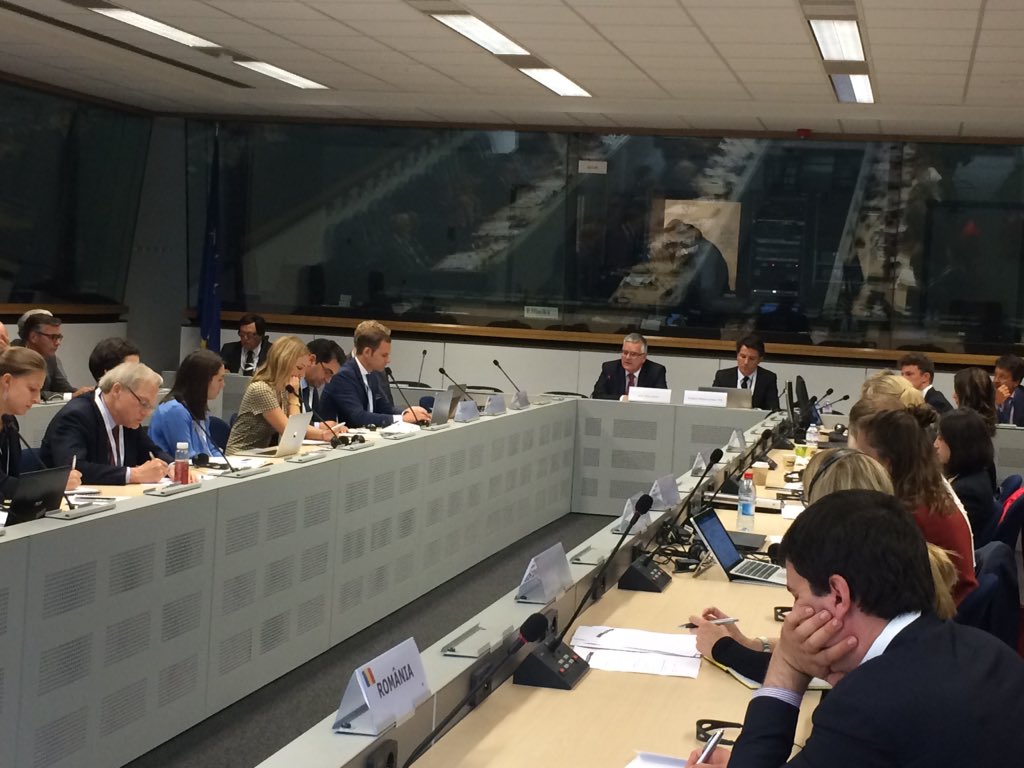
In July 2010 Council Decision 2010/430/CFSP established “a European network of independent non-proliferation think tanks in support of the implementation of the European Union strategy against Proliferation of Weapons of Mass Destruction”. The EU Non-Proliferation Consortium was created as a network bringing together foreign policy institutions and research centres from across the EU to encourage political and security-related dialogue and the long-term discussion of measures to combat the proliferation of weapons of mass destruction (WMD) and their delivery systems.
The EU Non-Proliferation Consortium was first managed jointly by FRS, the Peace Research Institute in Frankfurt (HSFK/PRIF), the International Institute for Strategic Studies (IISS) in London, and the Stockholm International Peace Research Institute (SIPRI), in close cooperation with the representative of the High Representative of the Union for Foreign Affairs and Security Policy. The Consortium forms the core of a wider network of European non-proliferation and disarmament think tanks and research centres closely associated to its activities. To date, this network brings together more than 80 think tanks and research centres combining the best non-governmental expertise in the European Union.
The EU Council Decision 2014/129/CFSP of the 10th March 2014 provided support for three more years to the activities of the EU Non-Proliferation Consortium to promote and coordinate the network. The support of the EU to the activities of the Consortium have been further extended through EU Council Decision 2018/299/CFSP of 26th February 2018. In line with the recommendations laid down in the European Parliament resolution of 27 October 2016 on nuclear security and non-proliferation, the names of the European network of independent non-proliferation think tanks and the Consortium have been adjusted to include the word ‘disarmament’. Furthermore, the Consortium membership now includes two additional institutes: The International Affairs Institute in Rome (IAI) and the Vienna Centre for Disarmament and Non-Proliferation (VCDNP).
The main objective of the project is to encourage discussions of measures to combat the proliferation of weapons of mass destruction (WMD) and their delivery systems, as well as the spread of conventional weapons, between civil society – particularly among experts, researchers and academics – EU policy makers, and member states. The network provides policy advice and supports EU actions to counter proliferation and to increase awareness on the topic. It contributes to increasing the visibility of EU policies as well as its actions in the fields of chemical, biological, radiological and nuclear (CBRN) non-proliferation and disarmament.
The Consortium also raises awareness about the challenges related to WMD and conventional weapons proliferation in third countries, through activities such as dedicated training and outreach projects. Furthermore, the network aims at raising awareness on the need to work together with the European Union and other multilateral fora, such as the United Nations, to prevent, deter, halt and where possible, eliminate proliferation programmes of concern worldwide and the illicit trade and excessive accumulation of small arms and light weapons (SALW) and their ammunition. To that end, the Consortium may establish cooperation with specialised institutions and research centres in third countries, in particular in those with which the EU is conducting specific non-proliferation dialogues.
The Consortium works through the organisation of expert meetings, international conferences, ad hoc seminars, through the development of a dedicated website, an e-learning course and through a collection of publications.
Within the core group of the Consortium, FRS is in charge of organising and implementing annual consultative meetings which bring together EU officials, representatives from EU member states and researchers from all over Europe and beyond to share policy insights and provide concrete policy recommendations to the EU on the most salient non-proliferation and disarmament topics. FRS is also tasked to implement ad-hoc seminars on key topics of interests for the EU, and it also maintains the Consortium website.
Point of contact: Benjamin Hautecouverture
Team
Dedicated Internet website
Events organised by FRS
Thirteenth EU Non-Proliferation and Disarmament Consultative Meeting
10 June and 13 June 2024
The thirteenth consultative meeting of the EU Non-Proliferation and Disarmament Consortium was a research, reflection, and exchange event with two distinct parts.
The first part of our meeting was devoted to the impact of major current factors in the evolution of non-proliferation and disarmament issues: Russia's aggressive foreign policy, emerging and disruptive technologies, the assertion of Chinese power, and the multidimensional crisis affecting the Middle East region. The implementation and universalisation of the Ottawa Convention banning anti-personnel landmines will also be addressed.
The second part looked at general trends and specific updates: the global movement of arms transfers, the fight against diversion (technical and political tools, and the role of Industry), and the latest issues in the use of artificial intelligence in military matters.
Twelth EU Non-Proliferation and Disarmament Consultative Meeting
12 September and 15 September 2023
Organised by the Fondation pour la recherche stratégique (FRS), the meeting focused on the European angle of the current topics of debate: interests
of the EU, impacts of risks and threats on European security interests, and common policies. In addition, the Meeting focused on technical, operational, and strategic approaches to the questions posed, trying to step back from the current debates to give them analytical depth.
Eleventh EU Non-Proliferation and Disarmament Consultative Meeting
14 - 15 September 2022
Organised by the Fondation pour la recherche stratégique (FRS), the meeting focused on the topicality of multilateral export control regimes.
A long-standing and important part of the global non-proliferation architecture, multilateral export control regimes are informal groups of states that agree to coordinate their export control policies and practices for military and/or dual-use goods and technologies in order to prevent the associated proliferation risks. In addition to the four main existing regimes (the Australia Group, the Missile Technology Control Regime, the Nuclear Suppliers Group and the Wassenaar Arrangement on Export Controls for Conventional Arms and Dual-Use Goods and Technologies), specific European mechanisms have been added over time. Thus, a EU regulation governs the export control regime of dual-use items. Additional restrictive measures (such as the sanctions imposed on Russia after the launch of its armed aggression against Ukraine, for example) have been or may be added to these mechanisms, whether voluntary or binding. All these measures play a direct role in the fight against proliferation, but also in disseminating norms and involving industrial and scientific stakeholders in the global security architecture.
War in Ukraine: The impact on the international security architecture
16 - 17 May 2022
On 16 and 17 May 2022, the FRS on behalf of the EU Non-Proliferation and Disarmament Consortium organized an Ad-Hoc Seminar on the war in Ukraine: The impact on the international security architecture.
The aim of this ad hoc seminar was to bring together leading European experts as well as EU officials and representatives of EU Member States to reflect on the first lessons to be learned from the Russian invasion war against Ukraine in terms of international security: Threats to civilian nuclear facilities, the link between nuclear deterrence and threats of use, chemical and biological issues, among others. The EU's response in terms of sanctions and export controls also was analysed in detail. Finally, the impact of war on the European security architecture and the wider global order, especially the global nuclear order, was addressed.
Tenth EU Non-Proliferation and Disarmament Consultative Meeting – Hybrid event
16 - 17 September 2021
The 10th Consultative Meeting of the EU Non-Proliferation and Disarmament (EUNPD) Consortium was held in a hybrid format on 16 and 17 September 2021.
Organised by the Fondation pour la recherche stratégique (FRS), the meeting addressed the challenges and opportunities pertaining to the upcoming NPT Review Conference, the situation in the Indo-Pacific, as well as the issue of new technologies and arms control in the plenary sessions. In addition, breakout sessions were organised on missiles in the Middle East, the security architecture in Europe and cyber issues.
The virtual format allowed more than 100 participants representing EU Member States, the EU, and research centres of the EUNPDC Network to take part.
Ninth EU Non-Proliferation and Disarmament Consultative Meeting – virtual event
10-11 September 2020
The 9th consultative meeting of the EU Consortium on Non-Proliferation and Disarmament was held on 10 and 11 September 2020 in remote format. It was an opportunity to welcome the new Special Envoy on Disarmament and Non-proliferation and Head of the EEAS Disarmament Non-proliferation and Arms Export Control Division, Ambassador Marjolijn van Deelen, who focused her presentation on the challenge of multilateralism in arms control.
Eighth EU Non-Proliferation and Disarmament Consultative Meeting
11-12 June 2019
The Eighth Consultative Meeting of the EU Non-Proliferation and Disarmament (EUNPD) Consortium was held in Brussels (Breydel building) on 11 and 12 June 2019.
Mine Action Donor Strategies
28 November 2018
On 28 November 2018, the EU Non-Proliferation and Disarmament Consortium organized an Ad-Hoc Seminar on Mine Action Donor Strategies – Lessons for the Revision of the EU Guidelines for Mine Action, which was held at the Palais des Nations, Geneva, on the margins of the 17th Meeting of the States Parties to the Mine-Ban Convention (the Ottawa Convention).
Seventh Consultative Meeting of the EU Non-Proliferation Consortium
4-5 September 2018
The Seventh Consultative Meeting of the EU Non-Proliferation and Disarmament Consortium (EUNPDC) was held in Brussels (Borschette Center) on 4 and 5 September 2018.
